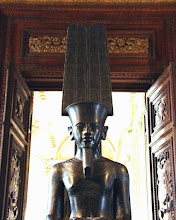Russian maestro Rostropovich dies
And what a great musician and human being he was.
"The celebrated Russian cellist and conductor Mstislav Rostropovich has died at the age of 80. ![]()

![]()
A master musician, Mr Rostropovich was also renowned for his backing for human rights and opposition to Soviet rule.
He spent much of his career abroad, in self-imposed exile from the Soviet Union over his support for Nobel prize writer Alexander Solzhenitsyn.
But he returned as communism collapsed and performed a Bach suite as the Berlin Wall came down in 1989.
President Vladimir Putin said that his death was a "terrible loss" for Russian culture.
![]()
![]() The best step was not found in music, but in one page of this letter
The best step was not found in music, but in one page of this letter ![]()
![]()
At Mr Rostropovich's 80th birthday celebrations a month ago, Mr Putin called the musician not only "a brilliant cellist and gifted conductor," but also "a firm defender of human rights".
He died at a Moscow clinic after a long illness, his spokeswoman said.
Reports from Russia said he would be buried in Moscow's Novodevichy cemetery, where his friend, the former President Boris Yeltsin, was laid to rest earlier this week.
Exile overseas
Mr Rostropovich studied at the Moscow Conservatoire under composers such as Sergei Prokofiev and Dmitri Shostakovich, rapidly building a reputation for himself.

But his support for dissidents such as Mr Solzhenitsyn - declared in a letter to state-run newspaper Pravda in 1970 - made him a target for the Russian authorities.
He left the Soviet Union and spent several years in the West with his wife, soprano Galina Vishnevskaya, and their children, as he continued to build an international career.
In November 1989, he gave a impromptu performance at the Berlin Wall as demonstrators tore it down, a show that was reported around the world.
Later the cellist was rehabilitated by then Soviet leader Mikhail Gorbachev, and he was able to return to Russia to perform.
In August 1991, he flew to Moscow to support Mr Yeltsin as hardliners attempted to reverse Mr Gorbachev's glasnost and perestroika reforms, spending days protesting in the parliament building.
He latterly divided his time between Russia, the US and France.
In an interview with the BBC World Service in 2002, he said that the letter to Pravda was the best thing he had done in his life.
"The best step was not found in music, but in one page of this letter," he said. "Since that moment my conscience was clean and clear."






